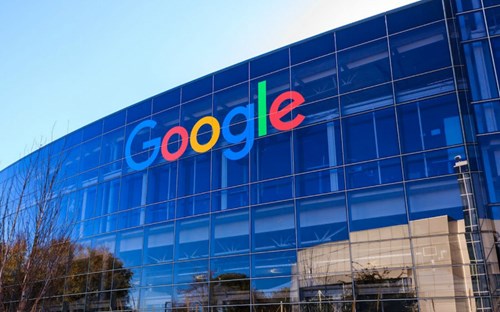Weeks after a shot from Thomas Matthew Crooks grazed Trump’s right ear, and missed his skull by inches, Sen. Roger Marshall (R-Kansas) demanded answers from Google. He wanted to know why the assassination attempt of a former U.S. president wasn't showing up in the world's most famous Internet search engine.
In a response, Google's vice president for Government Affairs and Public Policy blamed company algorithms for its "Autocomplete" omissions of search results relating to the July 13 assassination attempt.

Translation: Autocomplete was not convinced that Trump’s bleeding ear, dive for cover, and rush to safety with his Secret Service team, constituted an attempted assassination.
In the search bar, "Autocomplete" is a helpful function that generates predictions, such as "breakfast" could generate "breakfast recipes" and "Donald" could generate "Donald Duck."
Those search results don't pop up without human interaction, however.
It is the company’s policy to prohibit search results for “hypothetical political violence against current figures,” Mark Isakowitz wrote the U.S. senator.
“We do not allow predictions that can be interpreted as accusations against individuals or groups of serious malevolent acts, where there is a lack of well-established or expert supporting evidence,” he wrote.
'Election interference on steroids'
The tech giant has been tampering in elections for a long time, says Craig Huey, founder of the faith-based election website Election Forum.
Huey said on Washington Watch that the missing search results from Trump’s assassination attempt shed light on a pattern of Google’s bias against conservatives.
“Here’s the problem. This is not new with Google. Election interference is on steroids. Every single election they get better at it, and they are ideologically driven,” Huey told show host Jody Hice.
 “Conservative voices, Christian voices, looking for anything that Family Research Council has said, anyone looking to see what World Magazine or conservative media has said, you can’t find it," Huey said. "What do you find? You find The New York Times, Washington Post, Newsweek, you find all the liberal press."
“Conservative voices, Christian voices, looking for anything that Family Research Council has said, anyone looking to see what World Magazine or conservative media has said, you can’t find it," Huey said. "What do you find? You find The New York Times, Washington Post, Newsweek, you find all the liberal press."
More than 90% of search users use Google, according to BroadbandSearch.net.
Eighty-nine percent of those information seekers will not look past the first page of search results, Huey said.
 Earlier this month, U.S. District Judge Amit Mehta ruled that Google has illegally maintained a monopoly on the online search market.
Earlier this month, U.S. District Judge Amit Mehta ruled that Google has illegally maintained a monopoly on the online search market.
The company has engaged in exclusionary contracts and practices to limit competition, the judge found.
In his current feud with Google, Sen. Marshall has said Google basically admitted to its bias with the "bizarre" defense about a "hypothetical act of political violence."
"Google is now openly admitting that they were blocking and eliminating search prompts regarding the assassination attempt on President Trump," the senator told Fox News Digital.
Huey: Google is interfering in the election
Ignoring the responsibility for balanced results constitutes election interference, Huey said.
“If you were right now to go to Trump on student loans, what do you find? CNBC, Washington Post, Democrat.org, USA Today. If you go to Trump on Israel, what you see is all the liberal press and what they say about it. It’s all negative," he complained. "If you go to Harris, it’s all the liberal press saying how great she is. It’s a matter of deception.”
At some point algorithms are written by humans, Huey noted.

“It goes back to the idea that they set up algorithms, and they use AI to be able to determine something, but here’s the thing with AI and algorithms. It’s a human who has programmed them who has bias. That’s the problem that you have,” he said.
The solution to the problem is to get out of Google, Huey said. He encourages users of Gmail, Google News and other Google products to consider other service providers.
The autocomplete fiasco is just evidence of Google executives working to keep their promise from 2016.
“They made a pledge in 2016 when Donald Trump won his election, they’d never let this happen again, and that’s exactly what they’ve been doing. If you’re doing Google, if you’re doing Gmail, if you’re doing Gemini, if you’re doing Google News, it’s all slanted,” Huey said.







